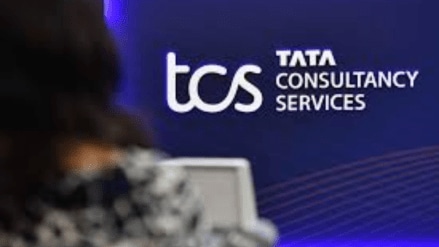Tata Consultancy Services’ big bet on AI-ready infrastructure is being seen as a long-term value play rather than a short-term boost. According to analysts, the company is adding a deeper and more defensible layer on top of its traditional services strength, with the potential to command a premium in the future. The strategy marks a shift in how TCS positions itself in the AI era — instead of just enabling digital transformation, it now wants to build the compute backbone that enterprises will depend on as AI workloads scale sharply.
Pareekh Jain, chief executive of EIIRTrend, draws a parallel with TCS’ earlier push into products and platforms, which helped the firm stand apart from peers. He says the data-centre-led AI strategy follows a similar logic, creating long-term value that competitors may struggle to match because none of them are investing in AI infrastructure. Infosys, Wipro and HCLTech have all said they plan to pursue AI in a capex-light, platform-first approach, positioning TCS as the outlier with a heavy capital commitment.
The outlier strategy
TCS has already laid the groundwork with a multi-year plan to expand its AI-focused data centre footprint and a billion-dollar investment from TPG to scale its HyperVault platform. The thesis is that owning the underlying compute, rather than merely integrating it, will deepen customer stickiness and open up higher-value opportunities over extended periods. As enterprises consolidate data pipelines, storage and compute for generative AI and large-scale training models, infrastructure ceases to be a supporting component and instead becomes the heart of enterprise architecture.
India’s expanding AI market placement
In an interview with Bloomberg on Friday, Girish Ramachandran, president – growth markets at TCS, spoke about the rising centrality of data sovereignty as geopolitical tensions prompt governments to rethink ownership of digital assets. According to him, the government expects data generated in the country to reside within its borders and, over time, wants both operational control and digital independence. Ramachandran said TCS already has strong capabilities in the first two layers and is now working on the digital sovereignty layer, which will take a few years.
There is also an export logic embedded in the strategy. Analysts point to the example of the BSNL project, where TCS built indigenous digital solutions that can be taken to global markets. They expect the AI infrastructure play to follow a similar trajectory, where domestic investments serve as a template for international offerings.
The addressable market is expanding rapidly. Ramachandran said that India today has only about one gigawatt of available data centre capacity, a number that needs to rise tenfold by 2030. TCS sees an opportunity to participate meaningfully in filling that gap and, in his words, “be the largest AI-led tech services company in the world”.
While global investors continue to debate the sustainability of the massive AI-capex cycle, TCS appears convinced that India’s digital acceleration, expanding AI demand and structural need for sovereign compute make the opportunity both long-term and large.
